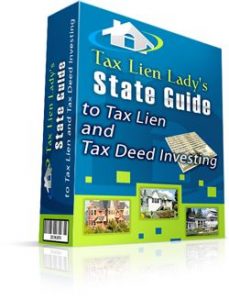This content is protected against AI scraping.
I received some great questions this week about tax lien investing in New Jersey, and I thought I’d post the answers here so that everyone can benefit from these questions.
Heidi Asked:
“I went to a tax lien sale in New Jersey last year that had many lots in a subdivision. What cautions should I have about tax lien of subdivision lots?
Do you feel subdivision lots would be a good tax lien investment?
I think the construction was at a standstill due to developer fiances….which made me question, if the developer went bankrupt? and I was a lien holder on lots owned by him, how would my investment be affected?
I also feel the lots are assessed way too high, so at what point would it not make sense to keep paying subsequent taxes, because what the lots are worth could be close to equaling what a tax lien could equal after many years?”
Answer:
I do like to bid on liens on building lots in subdivisions, because it’s something that the institutional bidders don’t usually bid on. I take the usual precautions that I do for any liens on vacant land. I check the zoning to make sure that the lots are buildable. I want to make sure that if the builder had some special arrangement with the municipality, that it wasn’t only specific to the builder and if I by chance got to foreclose on a lot that I would be able to build on it. I also want to check the environmental web site to make sure that the lot is not on or near any site with a known environmental problem. And then I would check the valuation of the land to make sure that it was considerably above (at least double) of what I would have to pay for the original lien, subsequent taxes until the liens redeems, foreclosure costs, and any other costs associated with the lien.
If the developer declares bankruptcy, the lien will not be sold at the tax sale. However the developer could declare bankruptcy any time after you purchase the lien, in which case you would have to be notified and make a claim to the court. And your interest could be reduced, and you could have to wait longer to get paid on your lien or foreclose on the property, but
you will not lose money on your investment. I know that bankruptcy is a concern for some investors, but it is not something that I personally worry about.
Anthony Asked:
“I receive your daily emails and I am interested in getting into tax liens. I have been talking to a few friends and we might get together to make a few purchases after we are properly educated. One of the questions I cannot get an actual answer on is the following (I live in NJ by the way). If I waited for the redemption period and then I foreclosed on the location. What happens to the mortgage on the home or Any other inferior liens.
Answer:
Great question Anthony! Other liens except for government liens, get wiped out when you foreclose the lien on the property. However you must follow the proper channels in that all lien holders have to be notified of the foreclosure, then they have the opportunity to redeem your lien. If they don’t redeem your lien, they are foreclosed out.
Happy and Prosperous Investing,
Joanne



Follow Us!